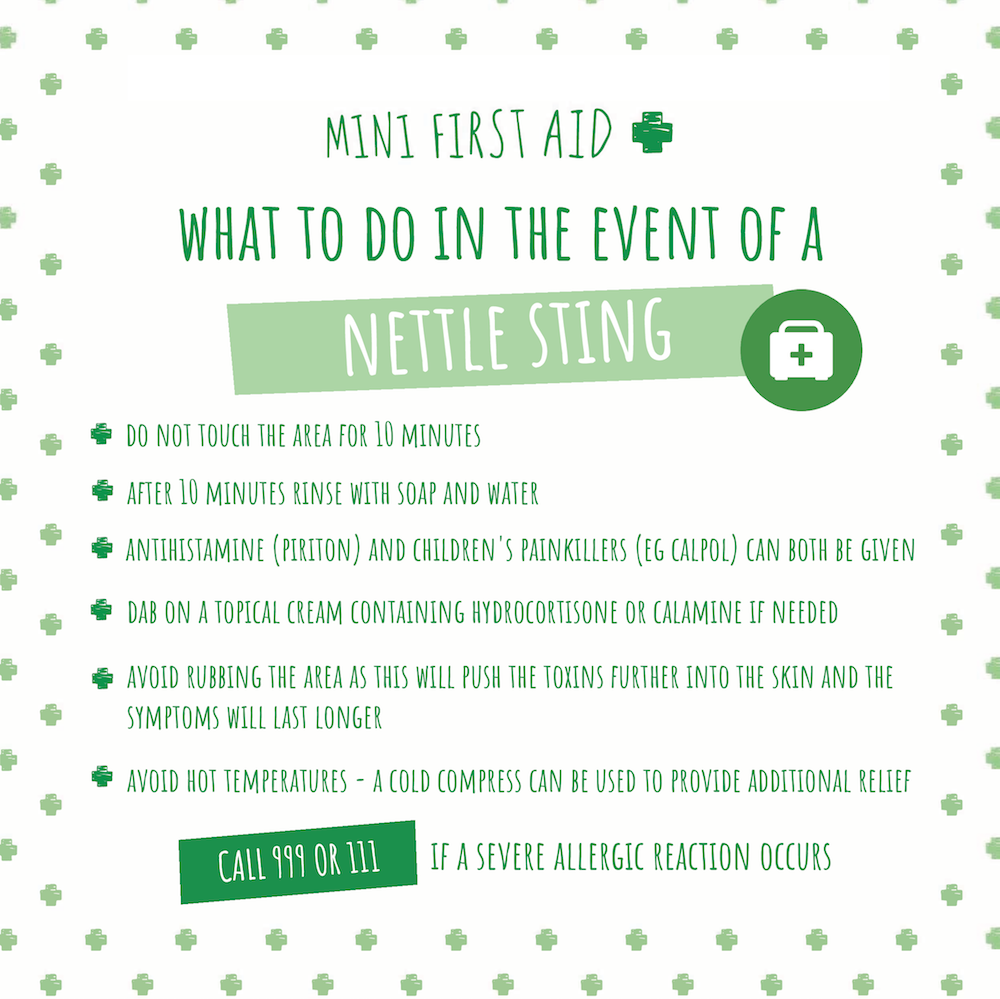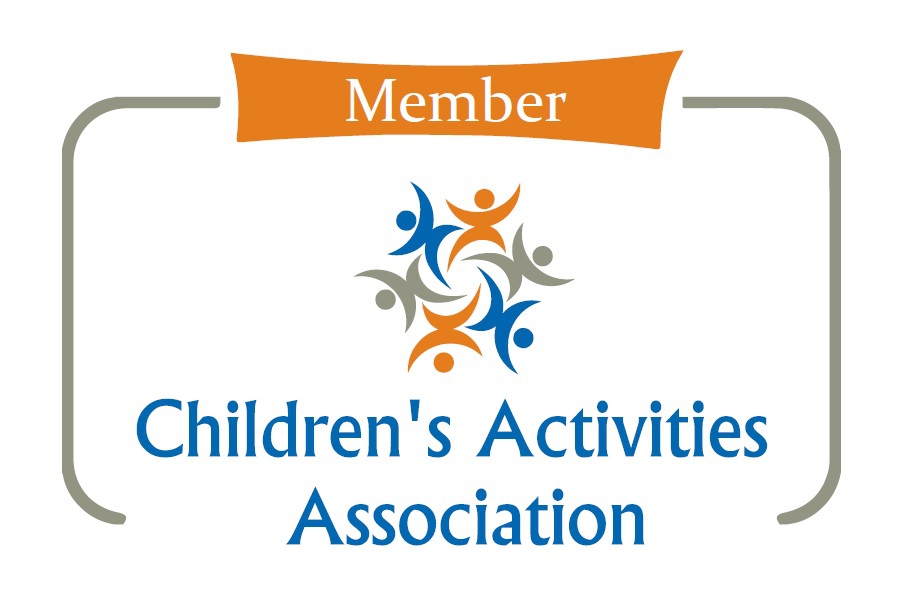It’s that time of year when the sun is shining (sometimes!), the kids are outside a lot more, and they can often be found running around in parks and woodland.
Whilst we all want to encourage our children to explore and be adventurous, as parents we also have a natural instinct to protect them; sometimes it can be difficult to strike the right balance. One thing we can do is to make sure that we’re prepared for any emergencies or injuries that happen and that we know what to do if they hurt themselves.
Unfortunately, the warmer weather also brings out some unwanted hazards, such as stinging nettles. If your children are anything like ours, they seem to have a knack for running and falling over just where there is a huge patch of these nasty plants! Many family days out have been ruined by a screaming child who has inadvertently stumbled into a crop of nettles.

Like many parents, you may have been brought up with the old wives’ tale that the best thing to do is to rub a dock leaf onto the sting – surely that’s why dock leaves always grow next to nettles?
There is no scientific evidence that dock leaves help with nettle stings. In fact, rubbing anything on the sting is likely to make it worse, as it pushes the chemicals from the plant deeper into the skin, which can cause the reaction to be more severe and to last longer.
The best course of action for nettle stings is actually as follows:
- It’s really important not to touch the area that has been stung for the first 10 minutes – this allows the plant chemicals to dry on the skin, which makes them much easier to remove. Try to distract your child as much as possible to stop them from touching the area; a well-timed treat or ice cream can work wonders!
- After 10 minutes, use soap and water to wash away the chemicals from the surface of the skin. This can often be enough to relieve any pain, itching, or swelling. A clean cloth can be used if you aren’t close to soap and water, until the area can be cleaned properly.
- After cleaning, you can use sticky tape to remove any remaining fibres from the skin.
- A dose of antihistamine (such as Piriton) will relieve the itching. Topical creams like calamine lotion or hydrocortisone can also be applied to reduce redness and itching (but be careful to gently dab the cream instead of rubbing).
- Children’s paracetamol (e.g. Calpol) or ibuprofen can be given if necessary to provide pain relief.
- You can use a cold compress on the area to provide additional relief, such as a Teddy Gel Pack. Hot temperatures and scratching should be avoided, as these can further irritate the area.

In rare cases, some people may have an allergic reaction to stinging nettles. In these cases, medical attention should be sought immediately as this can be life-threatening.
The symptoms of a severe allergic reaction to stinging nettles are:
- tightness in the chest or throat
- difficulty breathing
- wheezing
- swelling in the mouth, including the tongue or lips
- a rash in areas that haven’t come into contact with the nettles (this can be all over the body)
- stomach cramps
- vomiting
- diarrhoea

Most children will not forget what a nettle looks like once they have stung themselves, but to try and stop this happening in the first place, familiarise your child with what they look like, and point out the difference between stinging nettles (no flowers) and “dead” nettles which have flowers, commonly white but sometimes pinky / purple.
Another tip is to always carry a first aid kit and don’t forget your sachets of medication such as Calpol which can easily be fitted into a kit.
Whilst you can’t always prevent a nettle sting occurring in the first place, you can be prepared to deal with those pesky stings and get your day out with the kids back on track!
Enjoy those lovely summer days, Mini First Aid x
Don't forget your WASuP!
Say goodbye to the panic of bites and stings when you’re out and about! This genius little gadget fits in your pocket, changing bag or backpack and instantly releases a soft bamboo wipe soaked in organic apple cider vinegar for quick, soothing relief. Biodegradable, recyclable, and available in a handy box of four, WASuP is the fuss-free, leak-free essential for every age and every adventure.








